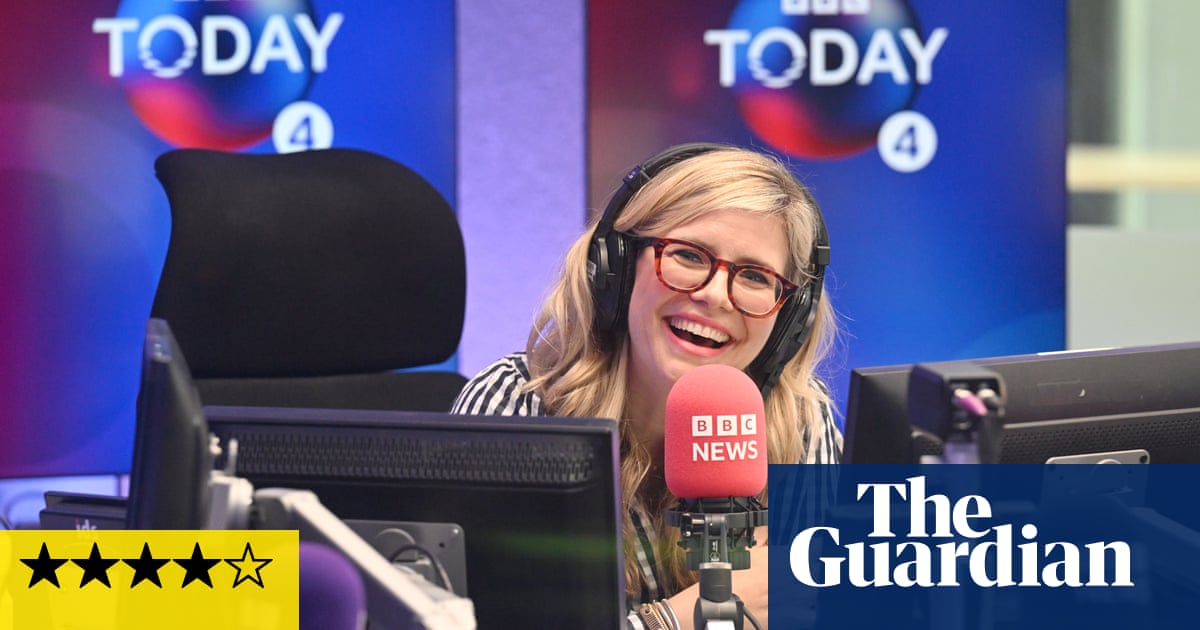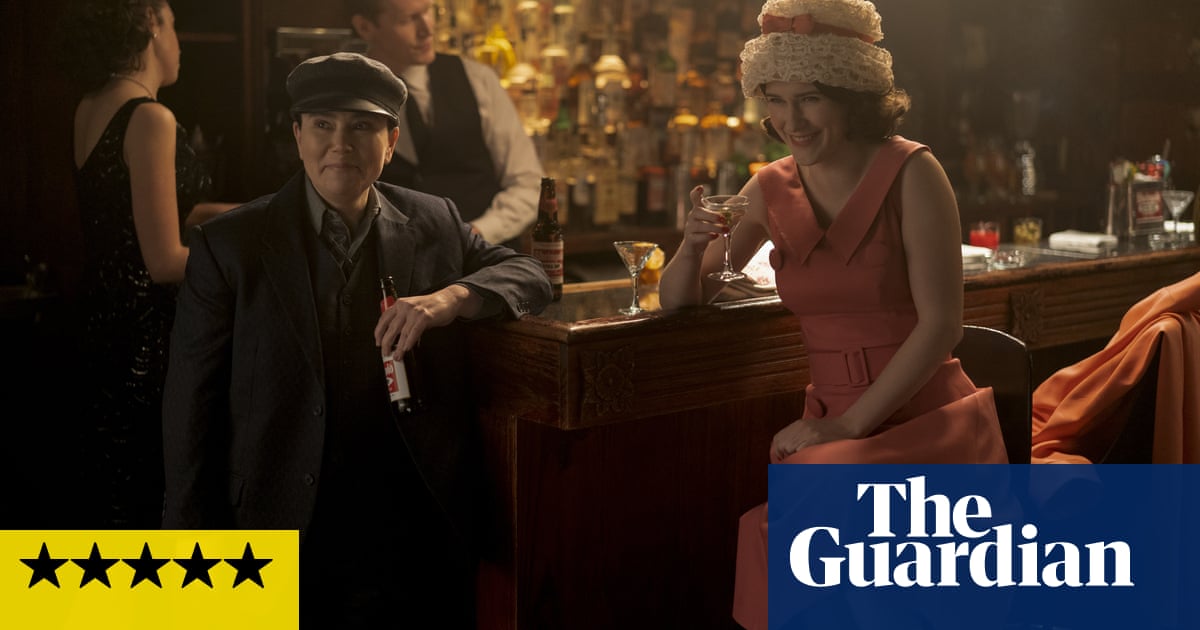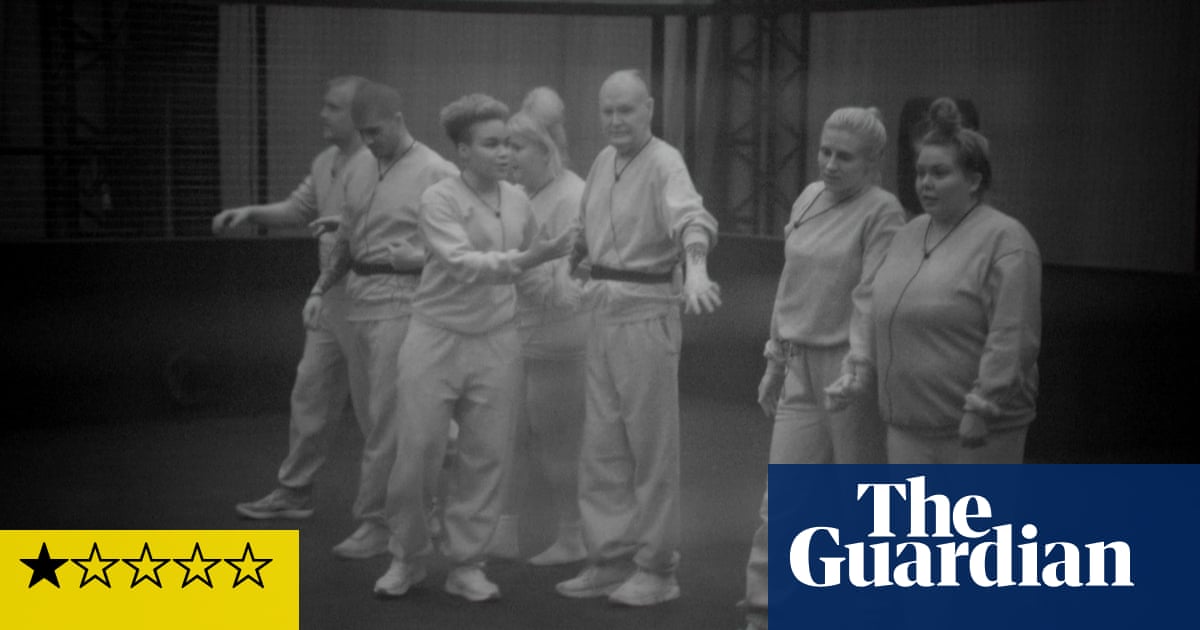
he broadcaster Emma Barnett is a seriously tough interviewer. In my fevered mind’s eye, I imagine her home life consists of her gleefully sucking the marrow from hapless politicians’ bones. She’s quite the contrast from Jenni Murray and Jane Garvey as the new main presenter of Woman’s Hour. Murray – very much Dame Jenni these days – long ago underwent an apotheosis from mere broadcaster into treacle-voiced national institution. Garvey, meanwhile, steadfastly projects sanity and ordinariness. There’s nothing ordinary about Barnett – though I wouldn’t rule out her ending up a national institution. “If I may,” is a phrase she uses quite a lot, when speaking to guests or introducing items. Never was there a more phatic request. One senses that Barnett doesn’t ask permission for much. Nor should she.
That iron confidence is reassuring for the listener. From the first moment that she came on air on Monday morning, reading out a letter to the show from the actual Queen, Barnett gave every impression of effortlessly owning the programme. That’s despite the fact that her first interview was a little frustrating. It was a good idea to talk to Sonia Khan, the special adviser who had been marched out of Downing Street in the summer of 2019 after a “conversation” with Dominic Cummings. The trouble was that getting Khan to say anything spontaneous or off-script was like trying to catch a squirrel by the tail. Not that the encounter was devoid of interest. Khan apparently considered herself an “experienced” person in government because she’d served for five years and was nearly 30.
More compelling was Barnett’s next item, with the former foreign secretary Jeremy Hunt and Richard Ratcliffe, in which Barnett patiently unfurled some of the issues that have militated against Nazanin Zaghari-Ratcliffe’s release from imprisonment in Iran. If either of these items was missing anything, it was, oddly, a clearer focus on gender, some distinctive sense or tone of “Woman’s Hour” to distinguish the interviews from those on the Today programme or Barnett’s old hunting grounds of Radio 5 live.
Newsy, reactive, fast-paced, tinctured by controversy: that was Barnett’s first week – not words that have been hitherto much associated with Woman’s Hour, or at least not all at once. On Tuesday Barnett tackled the government U-turn on the closure of schools. The ideal victim, of course, would have been Gavin Williamson, whom she would have chewed up and spat out nicely; funnily enough, he was unavailable.
On Thursday she turned her attention to the previous evening’s riots around the Capitol. Trump’s most hardened, white-supremacist supporters are associated with pretty retrograde views on gender equality, so it was a good instinct to consider, with the help of the writer Helen Lewis and the academic Melissa Milewski, the appeal of the movement to female supporters, often via conspiracy theories that falsely claim high-ranking Democrats are involved in paedophile rings. The road that took a female rioter, Ashli Babbitt, from serving in the military in Iraq and Afghanistan to being shot dead by police after storming into the Capitol will doubtless be pored over by journalists for months to come: Barnett wasted no time in getting started.
The controversy came on Wednesday – though not in the programme itself, which was devoted to the #MeToo movement a year on from Harvey Weinstein’s trial. One of the planned participants in the discussion, Kelechi Okafur, tweeted to say that she had dropped out of the programme just before going on air, after overhearing Barnett and producers discuss her, on an open Zoom link, in a way that she called “absolutely degrading and vile”. Later, Barnett published a statement saying that she and producers had been discussing alleged antisemitic remarks made by the actor several years ago. She had offered Okafur the opportunity to respond on-air, she declined and left the call. In my book, every day is a good day for tackling alleged antisemitism, but this was clearly a bit of a mess-up, and the result was that the discussion about a black-led and black-founded movement lacked a black participant.
There were, though, some fascinating points made about how the criminal justice system in England and Wales is buckling beneath the increase in cases of sexual assault being brought, and some welcome patience and complexity was offered by Sarah Green from the End Violence Against Women coalition. If only the novelist Lionel Shriver hadn’t been brought in at the end to tell us that #MeToo had, like Black Lives Matter “gone off at the deep end”. The tired view that #MeToo has “gone too far” was neither a helpful nor an insightful end to the conversation. There are plenty of people who could have brought depth to the debate: I recommend Barnett read Katherine Angel’s excellent forthcoming book about consent, Tomorrow Sex Will Be Good Again.
Perhaps the most enjoyable items in Barnett’s first week were those in which she slowed down and breathed a little: the interviews with the actor Imelda Staunton and the poet Carol Ann Duffy, and with a woman who had been “ghosted” by her own mother. Barnett could give the shows a bit more subtlety and thoughtfulness without blunting her political teeth and reactive instincts. Still, a week is a short time in a venerable radio show. She will surely find her groove.












